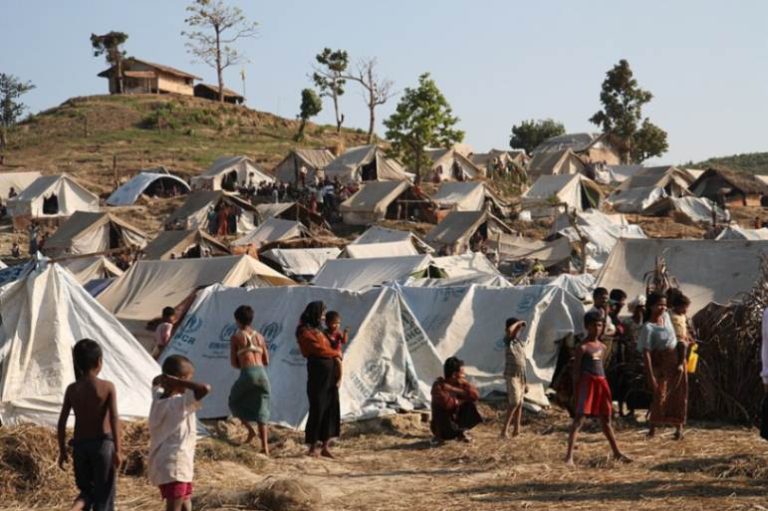
Menstruation is a natural biological process that half of the global population experiences at some point in their lives. However, in many parts of the world, including Bangladesh, menstruation is surrounded by stigma, misinformation, and inadequate resources. These challenges contribute to a significant public health issue: the limited access to proper menstrual hygiene products. This article explores the multifaceted problem of pad usage in Bangladesh, its implications, and potential solutions to ensure menstrual equity.
The Scope of the Problem
In Bangladesh, discussions around menstruation remain taboo, perpetuating misinformation and limiting access to menstrual hygiene products. According to a 2020 study by UNICEF, only 35% of menstruating women in Bangladesh use sanitary pads. The remaining rely on unsanitary alternatives such as cloth, straw, or even sand, exposing them to serious health risks.
Economic Barriers
Sanitary pads are often considered a luxury in many parts of Bangladesh, particularly in rural and low-income communities. The price of a pack of pads ranges from 70 to 150 BDT, a cost that is prohibitive for many families living below the poverty line. For perspective, over 20% of the population lives on less than $1.90 per day. For these families, spending money on menstrual hygiene products is often not a priority.
The economic barrier is further exacerbated by the fact that many women in Bangladesh do not have independent incomes. In a male-dominated financial structure, expenses related to women’s health are often deprioritized. This economic dependency, coupled with a lack of awareness, perpetuates the cycle of inadequate menstrual hygiene.
Cultural Stigma and Lack of Awareness
In addition to economic barriers, cultural stigma plays a critical role in limiting access to menstrual hygiene. Many girls and women feel embarrassed to purchase pads from male shopkeepers or discuss their needs openly. This stigma is further exacerbated by a lack of education on menstrual health. A study by WaterAid revealed that 40% of Bangladeshi girls did not know about menstruation before their first period, leaving them unprepared and often traumatized.
This lack of awareness is not limited to rural areas. Even in urban settings, menstruation is rarely discussed openly, and misconceptions persist. For instance, some believe that menstruating women are “impure” and should not participate in religious activities or even cook. These myths contribute to the marginalization of menstruating women, impacting their self-esteem and mental health.
Health Implications
The reliance on unhygienic alternatives has severe health consequences. Prolonged use of unclean materials can lead to infections, including urinary tract infections (UTIs) and reproductive tract infections (RTIs). These infections, if untreated, can cause long-term health issues, including infertility. The stigma and shame surrounding menstruation also discourage women from seeking medical help, compounding the problem.
Additionally, inadequate menstrual hygiene can exacerbate existing health disparities. Women who experience complications due to poor menstrual hygiene often face barriers to accessing healthcare, including financial constraints and social stigma. This creates a vicious cycle where untreated conditions lead to further health complications.
Environmental Challenges
While the use of sanitary pads is on the rise in urban areas, it introduces a different set of challenges. Most commercially available pads in Bangladesh are non-biodegradable and contribute to environmental pollution. With limited waste management systems, used pads often end up in rivers, drains, or open spaces, posing risks to human health and ecosystems.
Bangladesh’s waste management infrastructure is already under strain, and the improper disposal of menstrual products adds to this burden. The environmental impact of plastic-based pads is long-lasting, with each pad taking hundreds of years to decompose. This highlights the urgent need for sustainable alternatives.
Impacts on Education and Employment
The menstrual hygiene crisis in Bangladesh has a direct impact on education and employment. Many girls miss school during their periods due to a lack of access to proper sanitation facilities or pads. According to UNESCO, one in four girls in Bangladesh drops out of school after reaching puberty. This dropout rate not only hampers their education but also limits their future employment opportunities and economic independence.
The loss of educational opportunities due to inadequate menstrual hygiene perpetuates cycles of poverty and inequality. Educated women are more likely to contribute to the economy and advocate for better living conditions for their families. By addressing menstrual hygiene issues, Bangladesh can make significant strides in gender equality and economic development.
Similarly, women in the workforce face challenges due to inadequate facilities and workplace policies that do not accommodate menstrual needs. This lack of support contributes to absenteeism and reduced productivity, affecting the overall economy. For instance, many workplaces lack clean and private restrooms, making it difficult for women to manage their periods while maintaining professional responsibilities.
Addressing the Challenges
To tackle the issue of menstrual hygiene in Bangladesh, a multi-pronged approach is essential, involving government action, community engagement, and private-sector innovation.
- Reducing the Cost of Sanitary Pads
Making sanitary pads affordable is a critical step toward increasing their usage. The government can subsidize the production and distribution of pads, particularly in rural areas. In India, for example, the government’s “Suvidha” initiative provides biodegradable sanitary pads at a cost of just 1 INR per pad. A similar program in Bangladesh could significantly improve access.
Additionally, local production of sanitary pads can reduce costs and create jobs. Community-based initiatives that train women to manufacture low-cost pads can address both economic and accessibility barriers. Organizations like the Bangladesh-based NGO, JITA, have demonstrated the success of such models.
- Promoting Reusable Alternatives
To address both affordability and environmental concerns, reusable menstrual products like cloth pads and menstrual cups can be promoted. These products have a lower long-term cost and are more environmentally sustainable. Non-governmental organizations (NGOs) like Simavi and Days for Girls are already working to distribute reusable menstrual products in various parts of Bangladesh, but their efforts need to be scaled up.
Mass awareness campaigns are needed to educate women about the benefits and proper usage of reusable alternatives. Collaborations with local influencers and community leaders can help break cultural barriers and encourage adoption.
- Raising Awareness Through Education
Comprehensive menstrual health education is crucial to dispel myths and reduce stigma. Schools should incorporate menstrual health into their curricula, ensuring that both boys and girls understand the subject. Community workshops and campaigns can also play a significant role in educating adults, particularly parents, about the importance of menstrual hygiene.
Moreover, initiatives that focus on male involvement can create a more supportive environment. When men are educated about menstruation, they are more likely to support the women in their families and advocate for better policies at work and in the community.
- Improving Sanitation Facilities
The lack of clean and private sanitation facilities in schools and workplaces is a significant barrier to proper menstrual hygiene. The government and private sectors must invest in building and maintaining gender-friendly toilets equipped with water, soap, and disposal units for sanitary pads. Such facilities would encourage girls to attend school and enable women to participate fully in the workforce.
Investments in sanitation infrastructure should also prioritize rural areas, where facilities are often non-existent. Mobile toilets and community-led maintenance programs can provide interim solutions while long-term infrastructure is developed.
- Leveraging Technology and social media
Digital platforms and social media can be powerful tools for raising awareness and breaking taboos around menstruation. Influencers, educators, and NGOs can create content that normalizes menstruation and educates the public about menstrual health and hygiene. For example, campaigns like “#NoShame” can encourage open conversations and challenge cultural stigmas.
Mobile apps and SMS-based programs can also provide menstrual health information to women in remote areas. These platforms can include reminders, tips, and resources, making menstrual hygiene management easier and more accessible.
- Encouraging Corporate Responsibility
The private sector can play a significant role in addressing menstrual hygiene challenges. Companies that manufacture menstrual products should invest in research and development to create affordable and biodegradable options. Additionally, corporate social responsibility (CSR) initiatives can focus on distributing free or subsidized pads in underserved areas.
Success Stories and Lessons Learned
Countries like Kenya and Ethiopia have implemented successful menstrual hygiene programs that Bangladesh can learn from. In Kenya, the government passed a law in 2017 requiring the provision of free sanitary pads to schoolgirls. This initiative significantly reduced school absenteeism and improved academic performance. A similar policy in Bangladesh could have far-reaching benefits for the education system and beyond.
Overall, addressing the challenges of menstrual hygiene in Bangladesh is not just a matter of public health but also a question of dignity, equity, and empowerment. By reducing the cost of sanitary pads, promoting reusable alternatives, improving education, and investing in sanitation infrastructure, Bangladesh can make significant strides toward menstrual equity. It is time for policymakers, communities, and the private sector to come together and prioritize this issue. Only then can we ensure that menstruation is no longer a barrier to education, employment, or health for millions of Bangladeshi women and girls.




